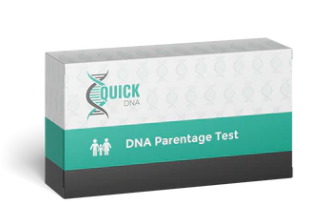In Short : Delving into the realm of personal health management, this article illuminates the profound impact of at-home DNA genetic testing. It delves into the myriad benefits, from early disease detection to tailored lifestyle advice, offering individuals a holistic view of their well-being. Dispelling myths and ethical quandaries underscores the paramount importance of safeguarding data and making well-informed decisions. As technology marches forward, the horizon gleams with promises of seamless integration, propelling DNA testing into the forefront of preventive healthcare, thereby transforming the landscape of wellness.
Harnessing the DNA (deoxyribonucleic acid) percentage test toolkit, individuals can now access their genetic health status through at-home testing kits, gaining profound insights into their genetic blueprint and its implications for well-being. Genetic testing represents a pivotal advancement in healthcare, empowering individuals to proactively manage their health journey. As these tools become increasingly accessible, individuals can navigate their genetic predispositions with informed decision-making, paving the way for personalized health strategies. This article explores the transformative benefits of at-home genetic testing, offering readers invaluable knowledge to guide their health decisions and embark on a journey toward optimal wellness.
Benefits of genetic percentage testing at home
At-home genetic testing is transforming how people engage with their health and well-being journey. With the ease of genetic percentage test kits, individuals gain early insights into their genetic predispositions for various health conditions, empowering them to take proactive steps toward prevention. These tests offer personalized health insights tailored to each individual’s unique genetic profile, guiding targeted interventions and lifestyle adjustments. From assessing disease risks to optimizing medication responses and offering nutritional and fitness recommendations, at-home genetic testing facilitates informed decision-making. Additionally, it aids in the early detection of rare diseases, identifies hereditary cancer risks, and supports family planning efforts. Each test result enhances individuals’ understanding of their genetic makeup, fostering a proactive and personalized approach to wellness. With at-home genetic testing, individuals can navigate their health journey with confidence and empowerment, armed with valuable knowledge to support their well-being.
disease risk assessment
With the assistance of at-home genetic testing, individuals gain personalized insights into their health regarding DNA diseases. These tests analyze specific genetic markers, revealing an individual’s susceptibility to particular DNa-related ailments and enabling proactive preventive measures. At-home genetic testing assesses risks of heart disease, cancer, Alzheimer’s, and other DNA-related conditions, empowering informed decision-making. Equipped with this knowledge, individuals can effectively steer their lifestyle choices and healthcare decisions. This invaluable tool not only provides clarity but also empowers individuals to take charge of their health journey with confidence and foresight, fostering a proactive approach to well-being.
Choosing the Right DNA Testing Kit
When selecting a DNA testing kit, it is important to consider several factors to ensure that you are choosing the right kit for your needs. There are many factors to consider when choosing the best and most popular self-DNA testing health devices.
Factors to Consider
When contemplating the purchase of a DNA testing kit, it’s essential to go beyond surface-level considerations. Begin by defining your health objectives, ensuring that the kit’s offerings align with your specific requirements. Next, thoroughly investigate the company’s reputation, focusing on its long-term reliability and accuracy. Additionally, prioritize kits that provide comprehensive results, offering actionable insights into your genetic composition for informed decision-making. Take time to explore any supplementary features or services available, such as counseling or interpretation assistance, to enhance your testing experience. Lastly, pay heed to customer feedback, as it can offer invaluable perspectives on the kit’s efficacy and usability. By incorporating these health-focused considerations into your assessment, you can confidently select a DNA testing kit tailored to your health journey’s unique needs and aspirations.
Common Misconceptions About DNA Percentage Testing Kits
Armed with the best DNA percentage test kit, individuals can proactively shape their health journey, starting with lifestyle adjustments tailored to their genetic predispositions revealed by DNA testing. This journey of self-discovery opens up possibilities to optimize well-being through personalized strategies, from dietary changes to increased physical activity. However, staying vigilant is crucial: regular health monitoring and updated genetic testing ensure informed decisions that align with evolving needs. Amidst the excitement, ethical considerations are paramount. Prioritizing data security and understanding ownership rights over DNA data are vital steps. Addressing misconceptions, like result accuracy and genetic discrimination, fosters a clearer understanding of DNA testing’s benefits and limitations. Looking ahead, technological advancements promise more accurate, affordable, and integrated at-home DNA testing within healthcare systems, paving the way for enhanced personalized health management.
conclusion
Ultimately, home DNA testing kits offer a transformative approach to personal health management, empowering individuals to make informed decisions and proactive lifestyle adjustments. As technology advances, the future promises even greater integration of DNA testing into health care systems, revolutionizing preventive care.
How accurate are DNA test results?
At-home DNA test results are generally accurate, but it is important to understand that they may have limitations and may require interpretation by health professionals for comprehensive understanding.
Are there any potential privacy risks associated with DNA testing?
Privacy risks may exist with at-home DNA testing, as personal genetic data may be stored and shared. Choose reputable companies that prioritize data security and provide transparent policies regarding data usage and security.









[…] site HealthinPedia is a reliable wellspring of information on wellbeing, wellness, and health. The specialists and experts at HealthinPedia, who work in numerous areas, including […]